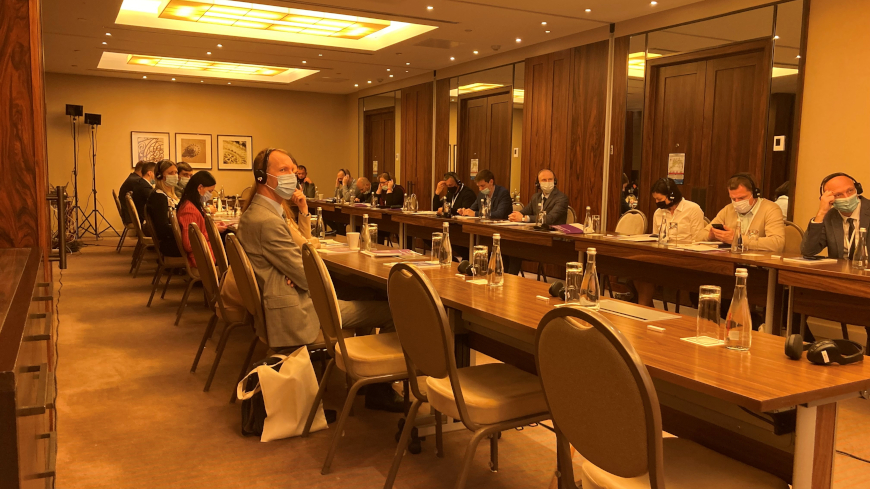The Council of Europe organised the launching and presentation event of the Manual on financial investigations for Ukraine. The Manual is the achievement of more than two years of joint efforts by law enforcement agencies, the Financial Intelligence Unit (FIU), the asset recovery and management agency, and customs and border guard services supported by international partners. It is a response to the findings of the MONEYVAL Fifth Round Evaluation Report, which indicated that there was some confusion between law enforcement agencies on a clear and common definition of financial investigation – in particular on whether it covered investigation into money laundering, investigation into other financial offences, or investigation of proceeds derived from offences. Moreover, there were no common instructions on when to start a financial investigation and what its aim should be. In addition, evaluators observed that, in practice, in-depth financial investigations appeared to be rare.
It is expected that the Manual will become helpful for law enforcement professionals to plan and conduct effective financial investigations, as it aims to develop an awareness of the processes of financial investigations and different approaches to conducting such investigations by public authorities engaged in combating crime with an economic component, recovery of criminal assets, fighting money laundering, terrorist financing and corruption.
The launching event was organised in a hybrid format, with some participants physically present and others connected online. It provided an excellent opportunity for the national stakeholders to take stock of the benefits and challenges of financial investigations through exchanges with international experts. The merits of financial investigations, which are indeed numerous, include the possibility to identify organised criminality and determine the extent and structure of organised crime groups, locate assets, identify ownership and use of properties, evidence offenders’ lifestyles, which can be useful evidence of involvement in crime, as well as the opportunity to track movements of people and money, place people at particular places at particular times, link them to criminality, and identify additional offences and offenders, among other advantages. The challenges are mainly related to resources for financial investigations, in particular in terms of time and specialised skills required.
This is part of the Council of Europe’s ongoing and continuous efforts to support Ukrainian authorities in the fight against economic crime.
This activity was organised within the framework of the Project on “Strengthening measures to counter money laundering and the financing of terrorism in Ukraine”, funded by the European Union and the Council of Europe and implemented by the Council of Europe in their Partnership for Good Governance II.





